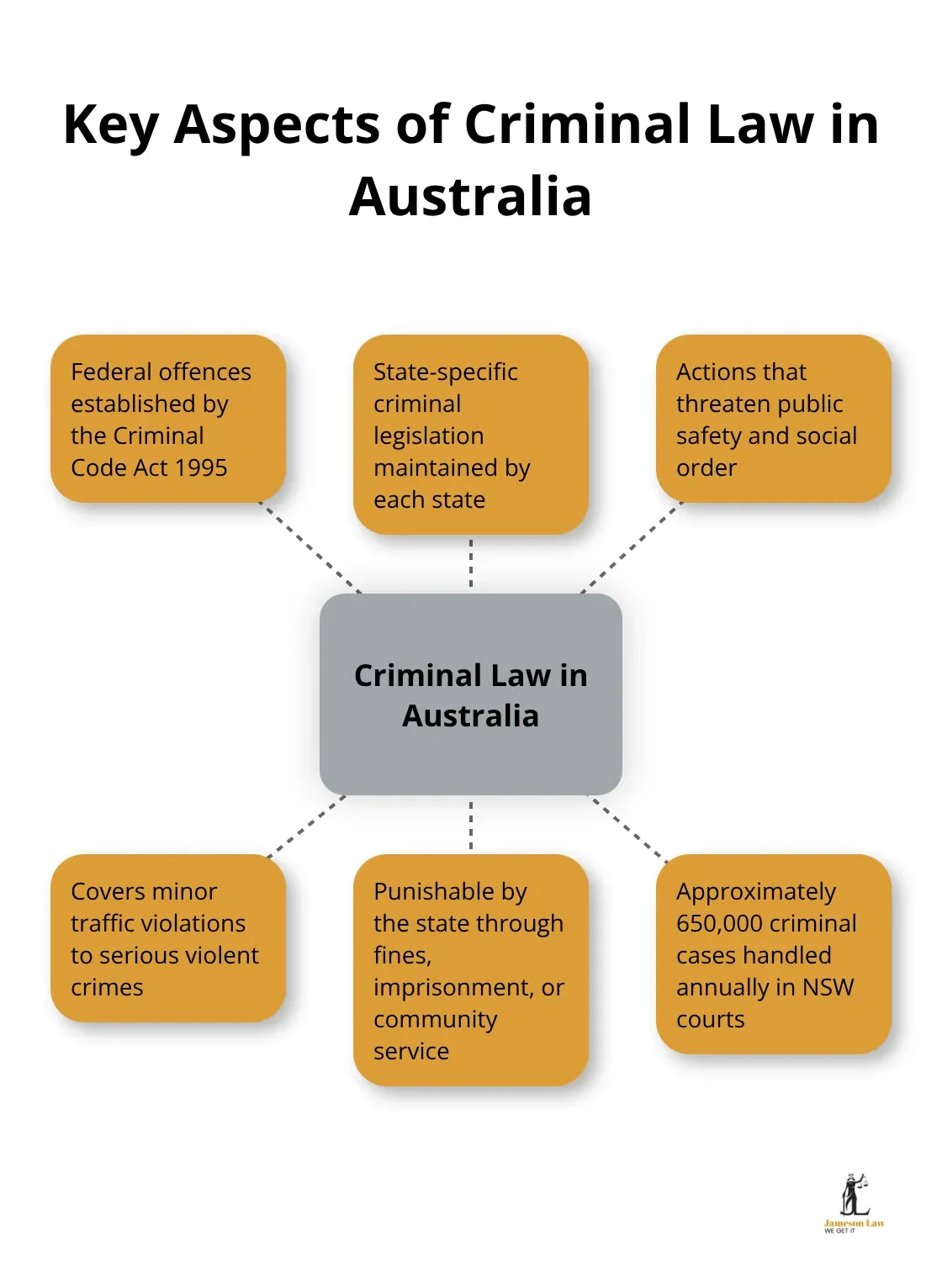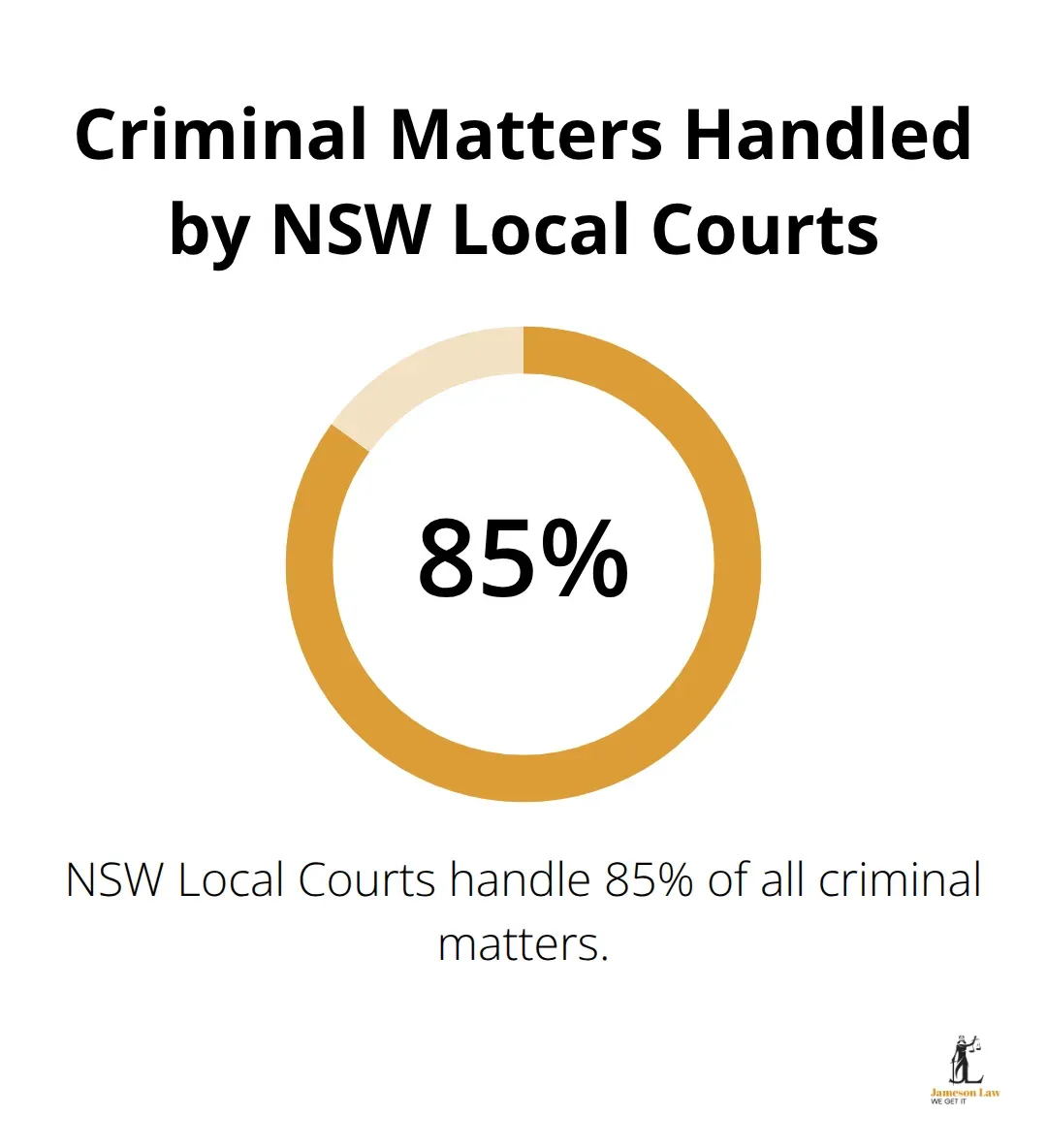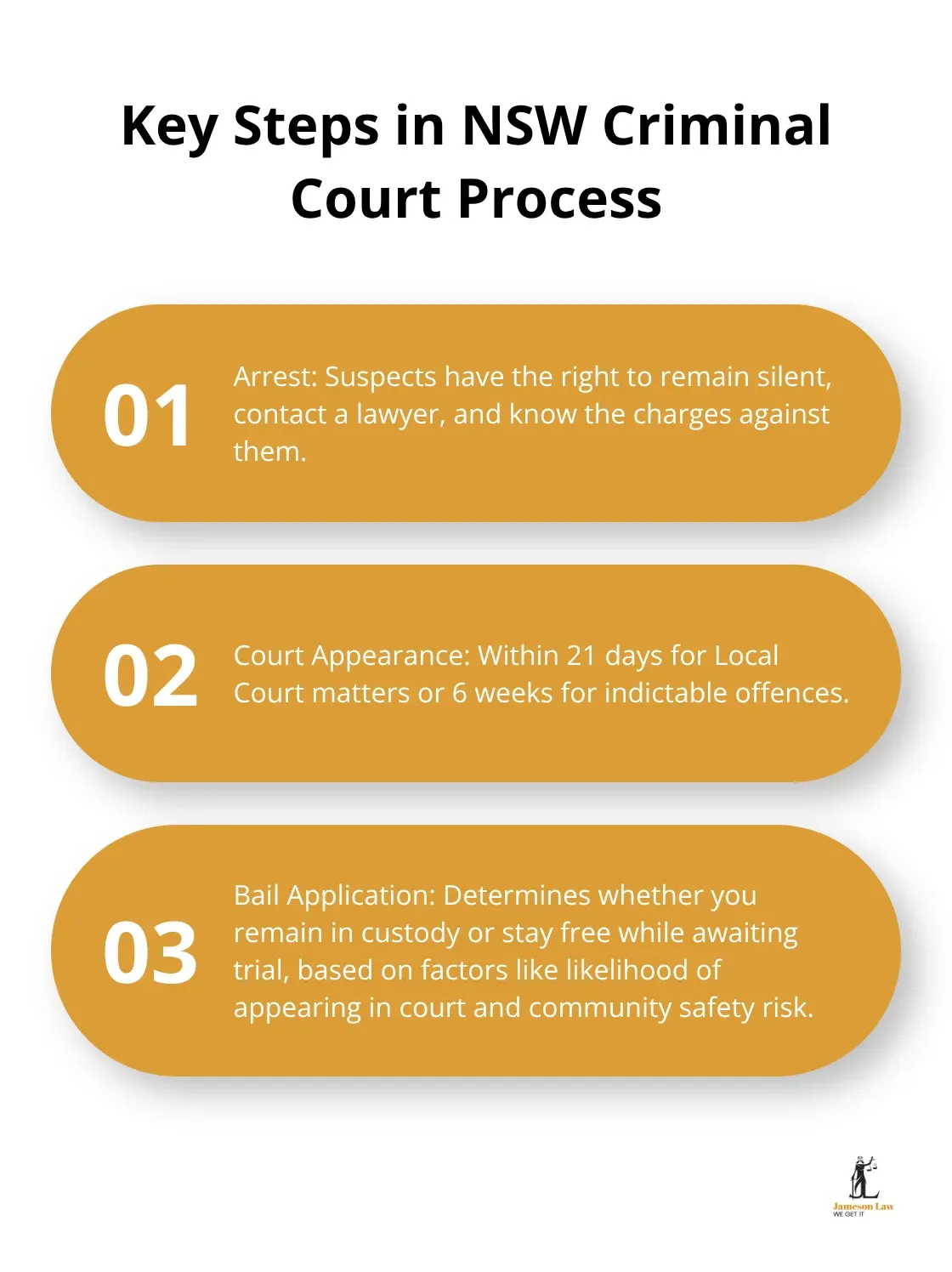Criminal law governs society’s most serious wrongdoings, from theft to assault to fraud. This comprehensive criminal law description covers offences that can result in imprisonment, fines, or community service orders.
We at Jameson Law see clients facing criminal charges daily across NSW courts. Understanding your rights and the legal process can make the difference between conviction and acquittal.
What Criminal Law Covers in Australia
Criminal law defines actions that threaten public safety and social order, making them punishable by the state. In Australia, criminal law covers everything from minor traffic infringements to serious violent crimes. Federal offences are created under the Criminal Code Act 1995 (Cth), while each state and territory has its own criminal legislation such as the Crimes Act 1900 (NSW). NSW courts deal with a very high criminal caseload each year across the Local Court, District Court and Supreme Court.

Criminal vs Civil Law Key Differences
Criminal law differs from civil law in three key ways. First, the burden of proof: prosecutors must prove guilt beyond reasonable doubt, while civil cases are decided on the balance of probabilities. Second, who starts the case: the Crown prosecutes criminal matters on behalf of the community, whereas individuals sue in civil disputes. Third, consequences: criminal convictions can mean fines, imprisonment or community service, while civil judgments usually involve money orders. See also our explainer on criminal law as a public system and the ABS crime and justice resources.
Criminal Justice System Core Principles
Three principles anchor Australia’s criminal justice system. The presumption of innocence means the prosecution must prove the case, not the accused. The right to legal representation ensures access to a lawyer, with Legal Aid NSW available for eligible people. The right to silence protects you from self-incrimination during police interviews and in court; LawAccess NSW explains how interviews work.
Types of Criminal Matters
Criminal offences fall into two main categories that determine which court will hear your case. Summary offences include minor matters like traffic and public order offences, usually heard in the Local Court with maximum penalties up to two years imprisonment on a single charge. Indictable offences cover serious crimes such as assault occasioning actual bodily harm, fraud and drug supply. These proceed to the District Court or Supreme Court and carry heavier penalties.
What Penalties Apply to Different Criminal Charges
Summary Offences in Local Court
NSW Local Courts deal with most criminal matters, including drink driving, shoplifting under set thresholds and common assault. For low-range PCA (BAC 0.05 to 0.079), penalties typically include an on-the-spot fine and licence disqualification; see NSW penalties and Transport for NSW Road Safety. Local Court magistrates can impose up to two years imprisonment on a single offence and significant fines for statutory offences.

Serious Crimes in Higher Courts
Indictable matters in the District and Supreme Courts include armed robbery, drug supply involving indictable quantities, serious assaults and homicide. Sentences can be lengthy, and parole eligibility depends on the offence and personal circumstances. For sentencing options and principles, refer to the NSW Sentencing Council and offence provisions in the Crimes Act 1900 (NSW).
Court Processing Times and Long-term Consequences
More serious cases take longer to reach hearing or trial. A conviction in the higher courts will appear on a National Police Check and can affect work in regulated industries. See also Service NSW for licence suspensions and BOCSAR for court statistics.
How Does NSW Criminal Court Process Work
The NSW criminal court process usually begins with a police arrest or court attendance notice. You have the right to remain silent, the right to contact a lawyer, and the right to be informed of the charges. NSW Police outline custody and interview procedures here: NSW Police — Custody. The first appearance for Local Court matters is typically at the nearest courthouse such as the Downing Centre Local Court in Sydney CBD.

Bail Applications Save Time and Money
Bail determines whether you remain in custody while your case proceeds. Magistrates assess court-attendance risk, community safety and the likelihood of further offending. Standard conditions include reporting, residence and non-contact undertakings. For guidance, see FCFCOA information and DCJ — Bail and remand. Our bail guide is here: how bail works in NSW.
Trial Outcomes Depend on Evidence Quality
Prosecutors must prove guilt beyond reasonable doubt. Many matters resolve through plea negotiations before hearing. Sentencing options range from fines and conditional release orders through to full-time custody; see NSW sentencing overview. For specific charge areas, explore our Sydney pages on traffic offences, assault and fraud.
Final Thoughts
Criminal law knowledge helps you avoid costly mistakes during police contact and court. Early legal advice is crucial for preserving defences, making a strong bail application and negotiating sensible outcomes. If you have a Court Attendance Notice or police want an interview, get advice before you speak.
We act in matters across NSW, from the Downing Centre to Parramatta, Liverpool and regional courts. Speak to Jameson Law on (02) 8806 0866 or book online for clear, practical help tailored to your case.
General information only, not legal advice.













